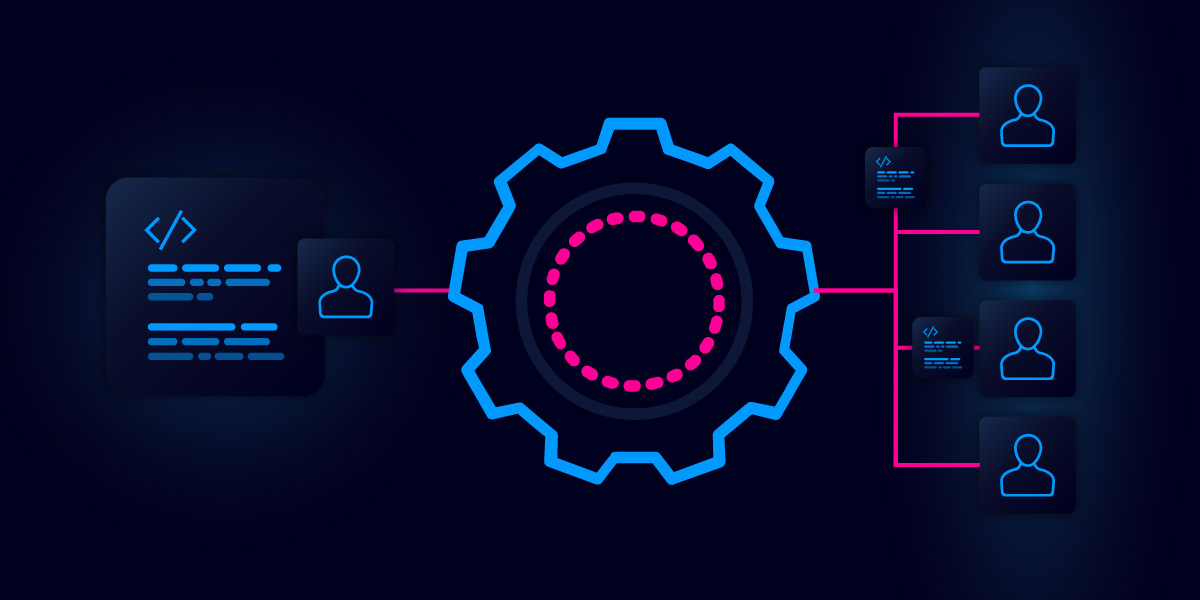Scalable ITSM platforms have become the cornerstone of efficient IT operations in today’s rapidly evolving business environment. As organizations grow, their IT demands increase exponentially, requiring systems that can adapt without compromising performance. Scalability in IT service management ensures that companies can handle increased workloads, more users, and greater complexity without disruptions. Businesses that rely on static IT solutions often face limitations that hinder innovation and service delivery. Elastic ITSM frameworks, on the other hand, provide the flexibility to evolve alongside business growth, ensuring consistent service quality. This adaptability is particularly critical for organizations undergoing digital transformation, where agility and operational resilience are key to maintaining a competitive edge.
How Scalable ITSM Platforms Enhance Service Delivery
One of the primary benefits of scalable ITSM platforms is their ability to enhance service delivery through automation, integration, and adaptability. As IT environments expand, the volume of service requests, incidents, and change management processes increases. Traditional manual methods become inefficient and error-prone. Scalable ITSM platforms streamline these operations by automating workflows, routing tasks efficiently, and maintaining real-time visibility across all IT services. This results in faster response times, reduced human error, and improved user satisfaction. Additionally, scalability ensures that as the number of users and systems grows, the platform can maintain consistent service levels without degradation. Consequently, scalable ITSM platforms play a pivotal role in sustaining high-quality IT service management even during periods of rapid organizational change.
The Role of Scalability in IT Service Management Architecture
Scalability is a critical architectural principle in IT service management platforms. It ensures that the underlying system infrastructure can handle increased data volumes, service requests, and integrations without requiring a complete redesign. Elastic ITSM frameworks are typically built using modular architectures that allow organizations to add or modify components as needed. This flexibility helps businesses adapt to evolving technologies such as cloud computing, IoT, and AI without major disruptions. Moreover, scalable architectures support distributed deployments, enabling organizations to extend ITSM functionalities across multiple regions or business units. In essence, scalability in ITSM architecture safeguards operational continuity and ensures that businesses can continue to innovate while managing complexity effectively.
Benefits of Implementing Scalable ITSM Platforms
Adopting scalable ITSM platforms brings multiple strategic advantages to organizations. One of the key benefits is cost efficiency. Instead of investing in new infrastructure each time demand increases, scalable systems allow businesses to expand capacity incrementally. This pay-as-you-grow model aligns IT costs with actual usage, optimizing resource allocation. Another major advantage is improved agility. Elastic ITSM frameworks empower teams to deploy new services, integrate third-party tools, and adapt processes swiftly to meet evolving business goals. They also improve collaboration by centralizing service data and ensuring transparency across departments. Furthermore, scalability enhances resilience, allowing IT operations to continue seamlessly even under peak loads or unexpected surges in activity.
Cloud-Based Scalable ITSM Platforms and Their Advantages
Cloud-based scalable ITSM platforms have gained widespread adoption due to their inherent flexibility and cost-effectiveness. Unlike traditional on-premises systems, cloud solutions can dynamically scale resources up or down based on demand. This elasticity makes them ideal for organizations experiencing seasonal fluctuations or rapid growth. Cloud-based scalable ITSM platforms also reduce infrastructure management overhead, freeing IT teams to focus on strategic initiatives. Furthermore, cloud platforms offer enhanced availability and security through redundancy and continuous updates. With integrations to AI, machine learning, and analytics tools, these systems provide deeper insights into IT performance. The combination of scalability, accessibility, and automation makes cloud-based ITSM solutions a powerful asset for modern enterprises seeking efficiency and agility.
Automation and AI in Scalable ITSM Platforms

Automation and artificial intelligence are central to the evolution of scalable ITSM platforms. Automation eliminates repetitive manual tasks such as ticket routing, incident categorization, and system monitoring. This not only increases efficiency but also allows IT staff to focus on more complex problem-solving. AI enhances scalability by providing predictive analytics and intelligent recommendations, helping teams anticipate issues before they escalate. For instance, AI-driven ITSM can automatically identify recurring incidents and suggest process improvements. As organizations grow, these intelligent features ensure that the platform continues to deliver optimal performance without additional manual oversight. The integration of AI and automation into scalable ITSM platforms represents a shift toward proactive and data-driven service management practices.
Scalable ITSM Platforms and ITIL Alignment
Aligning scalable ITSM platforms with ITIL (Information Technology Infrastructure Library) best practices ensures consistency and efficiency across service management operations. ITIL provides a structured framework that defines processes for incident management, change control, problem resolution, and service delivery. Elastic ITSM frameworks are designed to adapt these principles across varying levels of business complexity. As the organization expands, the platform scales its ITIL-aligned processes to accommodate new teams, services, and technologies without disrupting existing workflows. This alignment not only standardizes operations but also promotes continuous improvement. ITIL-based scalable ITSM platforms help organizations maintain compliance, improve service reliability, and enhance customer satisfaction by ensuring that all processes follow globally recognized standards.
Customization and Integration Capabilities of Scalable ITSM Platforms
Modern scalable ITSM platforms offer extensive customization and integration capabilities to align with diverse organizational needs. They support the integration of third-party tools such as CRM systems, monitoring solutions, and collaboration platforms. This interconnected environment enables seamless data exchange and improves overall service visibility. Customization options allow businesses to tailor dashboards, workflows, and reporting modules to specific departmental requirements. As organizations expand, elastic ITSM frameworks ensure that these customizations can be extended without performance issues. This adaptability not only supports operational efficiency but also enhances user experience by providing a unified interface for managing all IT-related activities. The combination of integration and scalability ensures that ITSM remains a central pillar of digital operations management.
Challenges in Deploying Scalable ITSM Platforms
While elastic ITSM frameworks offer immense value, their deployment can present certain challenges. One major obstacle is ensuring data consistency during scale expansion, especially in hybrid environments combining on-premises and cloud systems. Another challenge lies in training employees to use advanced ITSM features effectively. Without proper adoption, scalability benefits may remain underutilized. Integration complexity can also pose difficulties, particularly when linking legacy systems with modern elastic ITSM frameworks. Additionally, maintaining compliance and security during scaling operations requires vigilant monitoring. To overcome these challenges, organizations must adopt a phased implementation approach, focusing on process alignment, user education, and continuous performance evaluation. Effective planning ensures that scalability enhances rather than complicates IT service management operations.
The Role of Analytics in Enhancing Scalable ITSM Platforms
Analytics plays a vital role in maximizing the effectiveness of elastic ITSM frameworks. By collecting and analyzing data from various service management processes, organizations gain insights into performance trends, incident patterns, and resource utilization. Predictive analytics can forecast demand spikes, enabling proactive scaling of IT resources. Performance dashboards allow decision-makers to identify bottlenecks and implement timely improvements. Moreover, analytics-driven reporting supports compliance audits and strategic planning by providing quantifiable evidence of service quality. As scalability increases data volumes, advanced analytics ensures that the information remains actionable and accessible. Ultimately, the integration of analytics within elastic ITSM frameworks transforms raw data into a strategic asset that drives operational excellence and continuous improvement.
The Future of Scalable ITSM Platforms in the Digital Era
The future of scalable ITSM platforms is closely tied to advancements in automation, AI, and cloud technologies. As organizations adopt hybrid and multi-cloud environments, ITSM systems will need to evolve to manage increasingly complex infrastructures. The next generation of elastic ITSM frameworks will focus on hyperautomation—combining AI, machine learning, and robotic process automation to create fully autonomous IT ecosystems. Additionally, integration with DevOps and agile methodologies will further enhance responsiveness and innovation. These developments will empower IT teams to anticipate service demands, reduce downtime, and optimize performance at scale. In the coming years, elastic ITSM frameworks will not only support IT operations but also drive strategic business transformation by aligning technology with enterprise objectives.
Conclusion
Scalable ITSM platforms are the backbone of modern IT operations, enabling organizations to grow without compromising service quality. They provide flexibility, efficiency, and resilience through automation, cloud scalability, and AI integration. Businesses leveraging elastic ITSM frameworks gain the ability to adapt quickly to market demands while maintaining operational control. Although challenges in implementation and integration exist, their long-term benefits far outweigh the complexities. As technology continues to evolve, scalable ITSM platforms will play an increasingly vital role in aligning IT capabilities with strategic business goals, ensuring sustainable success in the digital era.
